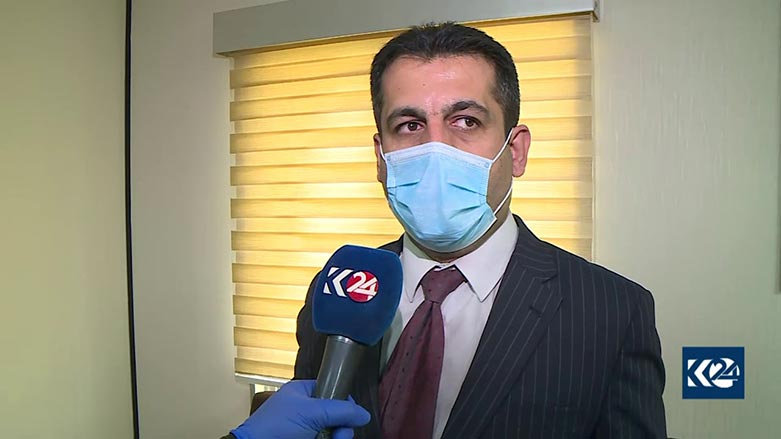‘Over two million vaccine doses administered in Kurdistan Region’: Health Minister

ERBIL (Kurdistan 24) – Over two million doses of COVID-19 vaccines available in the Kurdistan Region have been administered, Minister of Health Saman Barzanji announced on Monday.
Barzanji told Kurdistan 24 that out of 2,820,509 vaccines that the Kurdistan Region Ministry of Health made available for residents of the region, 2,049,565 have been used so far. In total, 872,660 individuals have received two vaccine doses, per official statistics.
According to the Kurdistan Region Ministry of Health data, an estimated 36 percent of the population over 18 have received at least one dose of the vaccines, and 27 percent of the 12-18 age group have taken at least one jab.
Related Article: KRG issues new COVID-19 measures as global surge continues
Under the ministry’s regulations, people must undergo different tests and procedures to receive a third vaccine dose.
Barzanji revealed that 770,944 vaccines are now available for people residing in the region. Furthermore, people can receive these vaccines at 180 vaccination centers and 45 mobile vaccination teams throughout the region.
Among the list of vaccines approved by the World Health Organization (WHO), the Kurdistan Region has been using AstraZeneca, Pfizer, and Sinopharm.
Read More: KRG Supreme Committee to Combat COVID-19 will meet to review regulations
As of Jan. 17, 2022, the total number of recorded cases since March 2020 in the Kurdistan Region has been 389,901. Out of these cases, 7,166 died and 373,953 recovered.
Correction: This story has been updated to reflect data published by the Kurdistan Region Ministry of Health.
